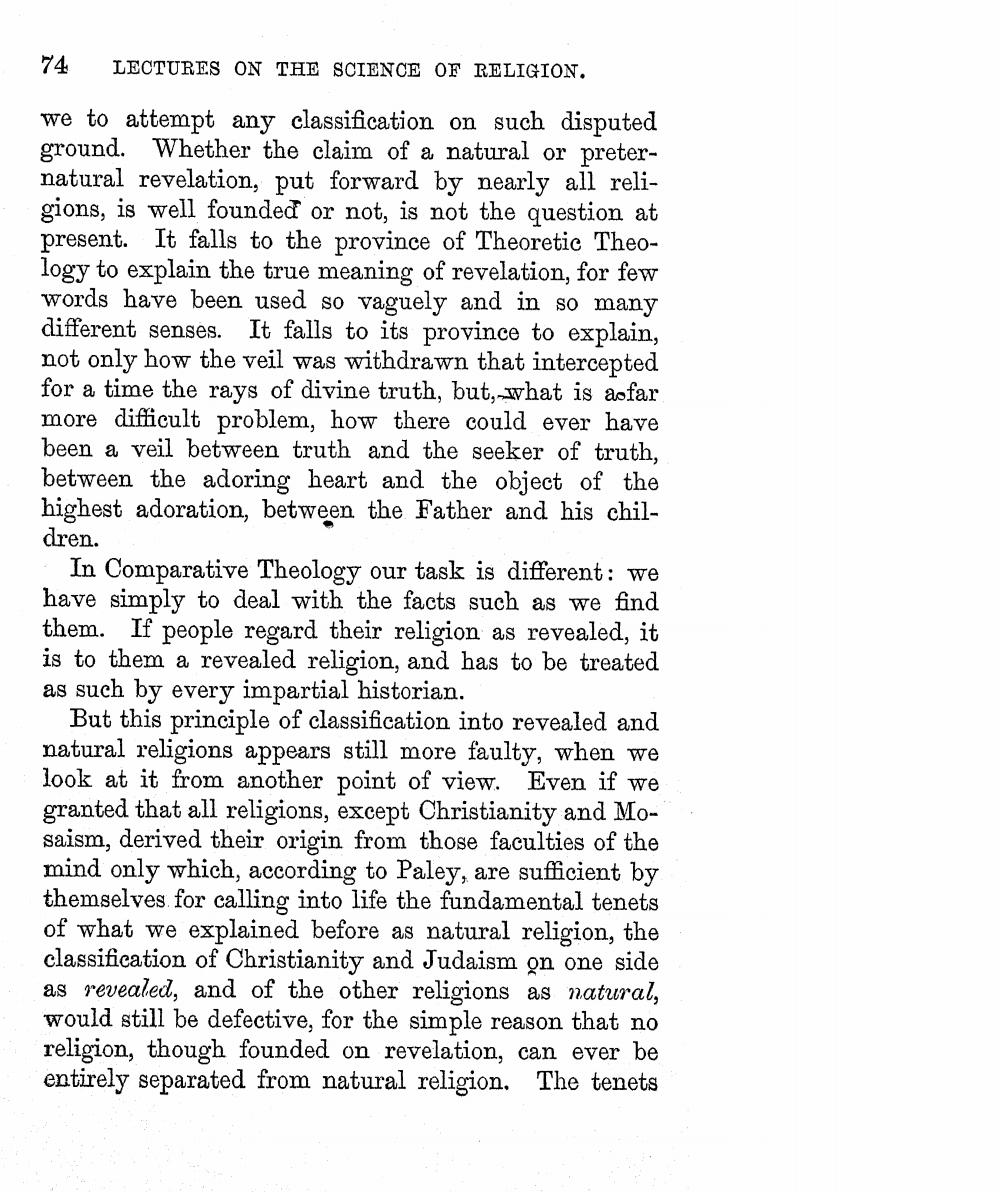________________
74
LECTURES ON THE SCIENCE OF RELIGION.
we to attempt any classification on such disputed ground. Whether the claim of a natural or preternatural revelation, put forward by nearly all religions, is well founded or not, is not the question at present. It falls to the province of Theoretic Theology to explain the true meaning of revelation, for few words have been used so vaguely and in so many different senses. It falls to its province to explain, not only how the veil was withdrawn that intercepted for a time the rays of divine truth, but, what is aofar more difficult problem, how there could ever have been a veil between truth and the seeker of truth, between the adoring heart and the object of the highest adoration, between the Father and his children.
In Comparative Theology our task is different: we have simply to deal with the facts such as we find them. If people regard their religion as revealed, it is to them a revealed religion, and has to be treated as such by every impartial historian.
But this principle of classification into revealed and natural religions appears still more faulty, when we look at it from another point of view. Even if we granted that all religions, except Christianity and Mosaism, derived their origin from those faculties of the mind only which, according to Paley, are sufficient by themselves for calling into life the fundamental tenets of what we explained before as natural religion, the classification of Christianity and Judaism on one side as revealed, and of the other religions as natural, would still be defective, for the simple reason that no religion, though founded on revelation, can ever be entirely separated from natural religion. The tenets




